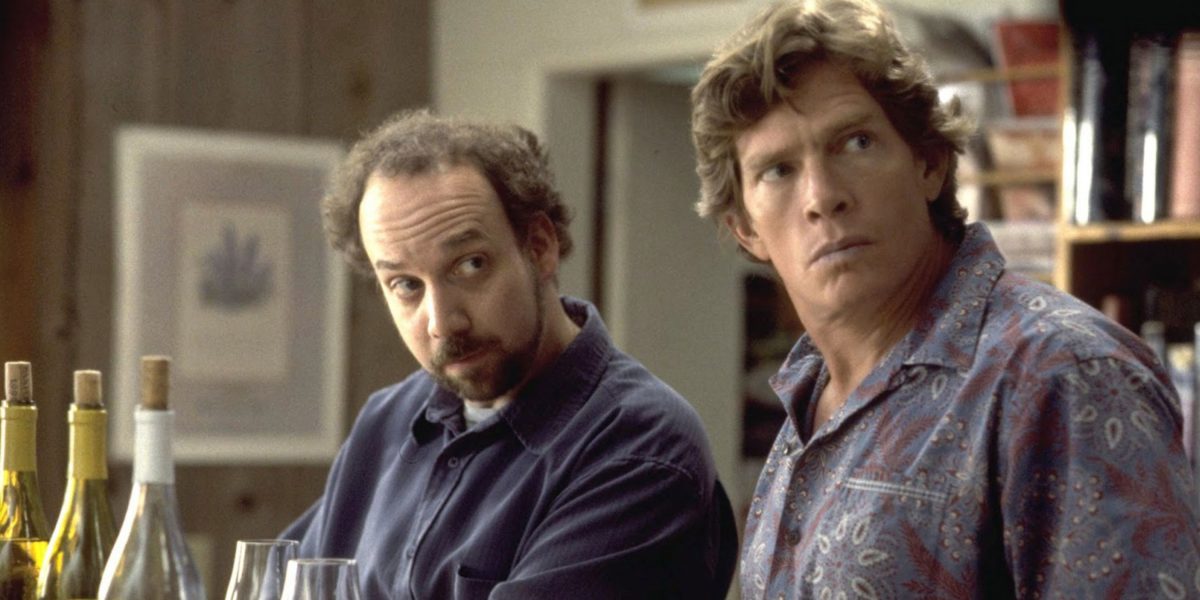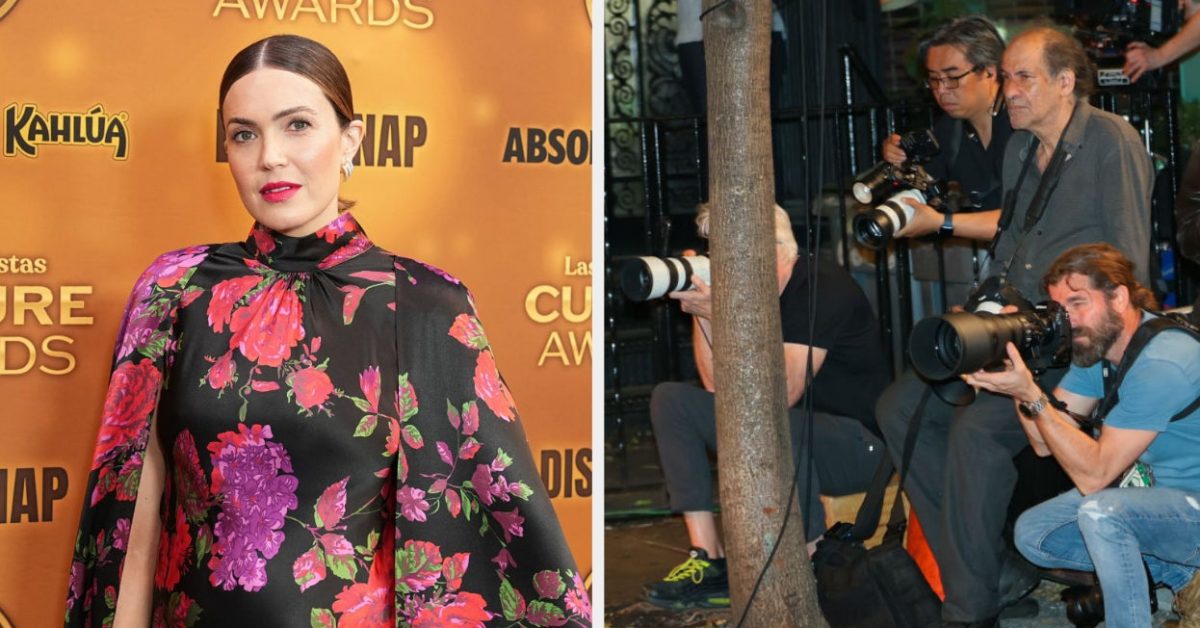
With ‘Sideways,’ Alexander Payne Gave Us a Different Kind of Road Trip
Nov 13, 2023
The Big Picture
Alexander Payne’s film Sideways follows two flawed men on a depressing road trip, challenging the stereotypes of the genre and showcasing their emotional stagnation. The film captures the malaise of a lackluster vacation, portraying the disheartening reality of midlife escapism and the unfulfilled desires of its characters. Sideways avoids the typical forgiveness of its protagonists’ flaws, instead offering a cynical examination of middle-aged angst and humanizing its characters through their open wounds.
A recurring compliment thrown towards director Alexander Payne is that he makes the kind of films that hardly get made at a mainstream level—broadly categorized as adult-oriented character studies that are funny, tender, and poignant. This is especially true of his upcoming boarding school-set dramedy, The Holdovers. Early reviews cite it as a refreshing throwback—a time capsule of a film that appears to be transported from the 1970s. Payne confirmed in an interview with Collider’s Steven Weintraub that he has been trying to capture the vibe and aesthetic of the decade throughout his entire career. While he possesses a crowd-pleasing streak in his oeuvre, Payne excels in genre and character subversion and nowhere is this more evident in his 2004 masterpiece, Sideways, the picture that defies all expectations of the road trip comedy.
Image via Fox Searchlight Pictures Sideways Two men reaching middle age with not much to show but disappointment embark on a week-long road trip through California’s wine country, just as one is about to take a trip down the aisle. Release Date October 22, 2004 Director Alexander Payne Cast Paul Giamatti, Thomas Haden Church, Virginia Madsen, Sandra Oh, Marylouise Burke, Jessica Hecht Runtime 124 Genres Comedy, Documentary, Drama, Romance
‘Sideways’ Depicts Flawed Men Who Can’t Get Out of Their Own Way
Payne’s Oscar-winning film, based on a novel of the same name by Rex Pickett, follows a week-long bachelor trip in Santa Barbara wine country for Jack (Thomas Haden Church) thrown by his friend, Miles (Paul Giamatti, who is reuniting with Payne in The Holdovers). Jack is an actor past his prime, who is set to be married in a week. Miles is a depressed middle school English teacher and failed novelist, who is recently divorced. The juxtaposition of Miles and Jack’s marriage status is represented in their outlook on life. Jack can only live for the moment and the wondrous potential of the future, while Miles is forever fixated on past emotional traumas. Along the way, Jack engages in infidelity with a local wine pourer, Stephanie (Sandra Oh), and Miles romantically connects with a fellow divorcee, Maya (Virginia Madsen). When he is at his lowest, Miles takes comfort in his fervid passion for wine, particularly Pinot Noir, but definitely not Merlot.
From the get-go, upon the introduction of Miles—who is seen hungover, lying to Jack on the phone, and completing a New York Times crossword puzzle while driving—‚Payne dispenses any notion that these characters are meant to be liked. Jack, who is good-natured at heart, succumbs to being unfaithful to his fiancé and maintains a college student’s quest for debaucherous behavior. The director, with his frequent co-writer, Jim Taylor, undercuts the indulgence of bachelor fantasies by punishing his characters, both physically and emotionally. Upon the inadvertent disclosure of Jack’s marriage, Stephanie beats Jack’s face to a pulp and is forced to wear a heavy bandage on his nose. Needing to concoct a cover story for his broken nose, Jack stages a car accident by driving Miles’ car into a tree, which leaves the vehicle nearly totaled. When Miles is given the heartbreaking news on the phone that his novel will not be published, he showers himself with the refuse from a spit bucket at a winery in rage, causing a massive stain on his shirt in the chest area, resembling blood.
Audiences recognize, especially in Miles’ case, that these two are emotionally stunted. While this trip was designed as a cleansing process for Miles’ depression and a last hurrah for Jack, Sideways reaches an outcome suggesting that neither of them is validated. Thanks to Giamatti’s brilliantly vulnerable and sympathetic performance, it is easy to feel bad for Miles as the misunderstood, tortured genius. He could capitalize on his expertise and glowing passion for wine as a profession, but he refuses. He could follow through on a potential romantic relationship with Maya, who seems to connect with him at a spiritual level, as demonstrated in her monologue about the majestic beauty of Pinot Noir. However, he is too emotionally frozen and averse to commitment. Miles and Jack, with the latter’s compromised state of being a frequent troublemaker, are the makers of their own inevitable demise.
Alexander Payne’s Preference for Cynical Character Studies
You just can’t help but pity the central characters in Sideways. Payne’s biting examination of aimless middle-aged men with a lackluster showing in life is a continuation of his work in Election and About Schmidt. He operates in a genre that invites saccharine stories about self-growth, but make no mistake, all of his films are defined by their varying degrees of downbeat cynicism. Payne’s inherently non-cinematic approach to character arcs complements his ambition to make films of the ’70s New Hollywood milieu. His films evoke the work of Hal Ashby, Peter Bogdanovich, Milos Forman, and other filmmakers of the decade who specialized in character studies of emotionally jaded people. The universally celebrated films of this cinematic period thrived in genre and character subversion. They sought to expose a dark core at the heart of the most unsuspecting people and places in America. Payne extracting loneliness and melancholy from wine snobs is tremendous insight. Every facet of wine, from its production to its target demographic, represents peacefulness and a sense of controlled tranquility. Miles, teetering on a mental breakdown throughout the film, is the foil to his beloved alcohol.
Sideways perfectly captures the malaise of an underwhelming vacation. Despite Jack’s hope for partying and Miles’ desire to swill on local wine, the trip never gets off on the right foot. Their first night takes a detour at Miles’ mother’s house, as he stops by on her birthday to steal money from her bureau. Jack abandons playing golf to spend time with Stephanie, leaving Miles alone to partake in mundane activities such as grading his student’s homework. There are few sequences on screen more pathetic than Miles purchasing the pornographic magazine Barely Legal at a convenience store on a Tuesday night. For anyone who has experienced an underwhelming vacation, the moment when Miles and Jack lie in their hotel beds watching golf with a keen dullness in the air is quite resonant. Wine Country presents a potent source of quiet humor in Sideways. In most scenes, Miles and Jack appear to be the youngest people in the room by 20 years. The inherent desires for midlife escapism are matched by an archaic environment more suited to an elderly population.
‘Sideways’ Follows an Uninspiring Road-Trip Between Two Friends
The pacing of the film, and the pair’s vacation by proxy, is indicative of how a week-long trip often transpires. Sunday and Monday dominated most of the run time. Tuesday-Friday progress swiftly. Vacations have a way of flying by, especially in the latter half. For Jack, this is disheartening, as, by the time the trip through wine country and infidelity ceases, he has to begin his new life as a faithful married man. A credit to Payne’s writing and direction, audiences are not led to believe that it will all work out for Miles and Jack. The latter is destined to disappoint his newly-wed wife, and the former seems to be forever dispirited, especially after hearing the news that his ex-wife, Victoria (Jessica Hecht), now re-married, is expecting the birth of a child with her second husband. Shattered by this revelation, Miles leaves the wedding party, obtains a prized wine of his from his apartment, and smuggles it into a fast food restaurant. If Miles couldn’t be any sadder of a person, one of the film’s final images consists of him drinking a Château Cheval Blanc from a Styrofoam cup.
It is easy to chalk up Sideways as a stereotypical middle-brow dramedy that earnestly sympathizes with the woe-is-me, tortured middle-aged man. This would be a reduction to the film’s arc, as Payne punishes Miles by refusing to give him closure during the film’s ending–only left to wait for Maya to open her door upon knocking. Speaking of which, Sideways’ treatment of female characters, people who are commonly disregarded in road trip comedies, is refreshingly well-rounded. Maya and Stephanie are initially positioned as devices for Miles and Jack, but they eventually contribute to the reckoning that the male leads face on their trip. In Maya’s case, she is made up of the same neurotic woes as Miles and is simply trying to figure out life as it rolls along. Her enchanting monologue about why she loves Pinot, an eloquent speech about the beauty of life symbolized by the growing of grapes, is a beautifully transcendent scene in a grounded buddy-comedy.
Comedies of all varieties, but notably ones involving a road trip or vacation between male friends, are quick to validate and forgive the flaws and wrongdoings of their protagonists. Sideways manages to avoid these pitfalls without being too didactic with its approach. Alexander Payne exploits the open wounds of his characters, and, in turn, humanizes them. Combined with an acerbic wit and cynical examination of middle-aged angst, Sideways is a hangover without the preceding partying. Coincidentally enough, the film likens itself to a fine wine. Sideways is rich, depth with flavor, and only flourishes with age.
Sideways is available to rent on Prime Video in the U.S.
Watch on Prime Video
Publisher: Source link
Mandy Moore Questioned The Need For Paparazzi, And She Has A Really Good Point
"They think I don't see them."View Entire Post › Disclaimer: This story is auto-aggregated by a computer program and has not been created or edited by filmibee.Publisher: Source link
Sep 20, 2024
People We Meet on Vacation Cast Revealed for Book’s Movie Adaptation
There are some more people to meet on vacation. The highly anticipated film adaptation of author Emily Henry’s bestselling romance novel People We Meet on Vacation has added more star power to the cast after initially casting actors Tom Blyth…
Sep 20, 2024
Here's Everything You Missed At The 2024 Emmy Awards, If You Didn't Get A Chance To Watch Them
The Schitt's Creek cast hilariously reunited on stage to end the 2024 Emmy Awards.View Entire Post › Disclaimer: This story is auto-aggregated by a computer program and has not been created or edited by filmibee.Publisher: Source link
Sep 19, 2024
Nick Cannon Shares Update on Ex Mariah Carey After Deaths in Family
Mariah Carey is showing that she can make it through the rain. The singer's ex-husband, Nick Cannon—with whom she shares 13-year-old twins Monroe and Moroccan—shared an update on how she's holding up after losing her mother, Patricia Hickey, and sister, Alison Carey, on the same…
Sep 19, 2024











